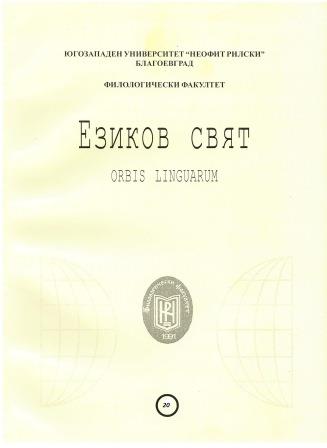ПАРТИЗАНСКИЯТ КОМАНДИР ЛЕВАНЕВСКИ – МЕЖДУ КРИМИНАЛНИЯ И ПОЛИТИЧЕСКИЯ ДИСКУРС
THE CASE OF PARTISAN COMMANDER LEVANEVSKI – BETWEEN CRIMINAL AND POLITICAL DISCOURSE
Author(s): Petar VodenicharovSubject(s): Language and Literature Studies, Philology
Published by: ЮГОЗАПАДЕН УНИВЕРСИТЕТ »НЕОФИТ РИЛСКИ«
Keywords: partisan fighters’ movement; antifascism; communist terror; psychanalysis; memoirs
Summary/Abstract: The article is part of a larger study of documents related to one of the communist regime's biggest crimes – the massacre without trial and the conviction of local elites (25-30 000 people) in a particularly sadistic way. The study is based on David Ovadia's documentary "Levanevsky" dedicated to a participant in the Partisan Fighters’ Movement, convicted not only for political but also for criminal offences and who led the sadistic murders of innocent civilians after the communist coup. The questions I want to answer to are: what are the reasons for the moral relativism of the author who tries to justify Levanevsky as a legendary hero. How long can anti-fascist rhetoric legitimize any crimes regardless of their scale and cruelty; what are the biographical psychoanalytical causes of communist sadism? The psychoanalytical analysis (linguistic turn in psychoanalysis) reveals a recurring biographical scheme – a despotic mother and an uninteriorized fatherly authority, which is not compensated by the symbolic networks of kinship, religion, school, army, profession. The involvement of criminals in the partisan movement compromises the anti-fascist movement – an atmosphere of fear, power battles, arbitrary killings and robberies was brought about. Reconstracting the life trajectory of Levanevski who was used and misused by the communists (killed without court and sentence after the communists took power) we could consider him as a representative of the peasant anarchism rather than the conscious antifascist struggle. Statistic data about the social and educational status of the Bulgarian partisan fighters (1941-1944) are also provided.
Journal: Езиков свят - Orbis Linguarum
- Issue Year: 20/2022
- Issue No: 3
- Page Range: 355-365
- Page Count: 11
- Language: Bulgarian

